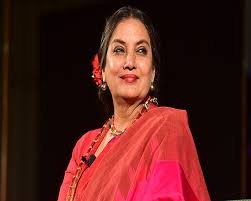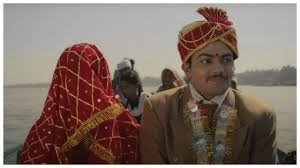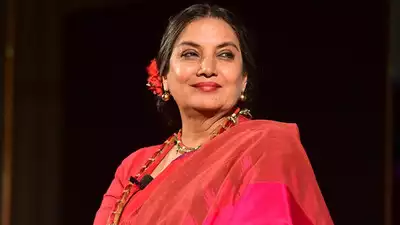Mumbai, Oct 24: Her first film opened the ‘parallel’ way for cinema that was both critically accepted and financially viable. Fifty years after “Ankur” and a career that successfully walked the twin paths, much like her debut movie, Shabana Azmi says the best is still to come.
The 74-year-old, feted for films as diverse as the intense “Paar” and the zany “Rocky and Rani Kii Prem Kahaani”, intends to move ahead with her “boots on”. “When I started 50 years ago, I had no idea that 50 years later, I’ll still be working, so it feels really good. I’m hoping that I’ll continue working because acting is what I enjoy the most,” Azmi told PTI in an interview. With an oeuvre spanning many classics and over 150 films, Azmi said she is only getting started.
“I always say that my career is about being at the right place at the right time. I’ve been very fortunate.”
Azmi is the only actor to win the National Film Award for best actress five times – for “Ankur”, “Arth”, “Bhavna”, “Khandhar”, “Paar” and “Godmother”. The actor, who has fronted the parallel cinema movement in India, has also been the mainstay in many a commercial film. Right from “Amar Akbar Anthony”, “Ek Hi Raasta” and “Parvarish” in the 1970s to “Rocky and Rani…” in 2023. She has also worked in several international projects, including the Steven Spielberg-produced series “Halo”, Shekhar Kapur’s “What’s Love Gotta Do With It”, Roberto Benignis starrer “Son of the Pink Panther” and Merchant Ivory’s “In Custody”.
“How many people get that? The last two-three years have been very satisfying… But I’m interested in working with younger directors, and also interested in working in mainstream cinema provided it is (with) a person with teeth,” she said.
Azmi started a Hindi theatre group with fellow student Farooque Shaikh while still at college at St Xavier’s in Mumbai. In 1971, she enrolled at Pune’s Film and Television Institute of India (FTII), hoping it would lead to work with Ebrahim Alkazi at the National School of Drama in Delhi.
Before joining FTII, she had seen Jaya Bhaduri’s diploma film “Suman” and remembers being mesmerised by it. “I had not seen that kind of acting in Hindi cinema at all,” said Azmi, who still does theatre.
She won the gold medal for best acting student and received her first acting offer, “Parinay”, just four days later. And then she made her acting debut with “Ankur”.
Has she ever thought of writing a script? “It is so easy being an actor. When I think of directing a film, so many people have asked me, (but) I find it so intimidating to work on a script and bring everybody on the same level… But I do look forward to working with Zoya and Farhan both,” she said, referring to her stepchildren.
While it is important to have women directors, Azmi said it is also important that their lens is feminine.
“Because far too long, it has been the male gaze and we need to have a women’s gaze. It is not necessary to have feminist gaze but a feminine gaze because I think men and women are different in how they view the world. It is not necessary that if you are a woman, you make only feminist films, you can make a thriller, comedy, a romance, but it should be through a woman’s lens.”
Azmi is also credited for paving the way for women actors to get roles of substance through her career in parallel cinema of the ’70s and ’80s.
The actor said she grew up thinking gender equality was a norm because of her parents, theatre artist and actor Shaukat Azmi and Urdu poet Kaifi Azmi. Both were leading names in the Indian People’s Theatre Association (IPTA) and the Progressive Writers Association (IWA).
“I took gender equality as a given. Only when I turned 19, did I realise that it was an exception rather than the rule and that took me by surprise,” she said.
This perhaps reflected in her choices as well.
“That was the time when ‘Ankur’ became a beacon of light for parallel cinema and because it did so well commercially, it opened up a spate of completely different parts for women. That’s why I say, ‘I was at the right place at the right time’. So, it was left to art cinema to give agency and substantial parts to women because in mainstream cinema it was usually just the song and dance routine.” (PTI)
- Advertisement -
- Advertisement -
- Advertisement -
- Advertisement -
- Advertisement -












